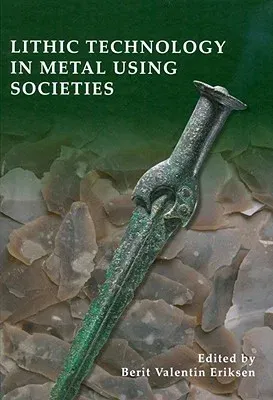During several hundred thousand years of human prehistory, siliceous
rocks such as flint and chert were the most important raw materials used
for tool production. In the 5th millennium BC, however, the use of
copper is documented in many Neolithic tool assemblages and in the
course of the 3rd millennium BC metal technology is introduced in
prehistoric societies all over Europe. With a few exceptions, metal is
largely superior to flint when it comes to the production of tools, yet
there are regions throughout the world where flint craftsmanship thrived
long after metallurgy had been introduced. There are numerous examples
of copper and bronze implements being copied with great skill in flint,
and in some areas simple flint tools would seem to be in common use even
in early Iron Age societies. The present volume embodies the proceedings
of a workshop dedicated to lithic technology in metal using societies
that was held in connection with the XVth UISPP congress in Lisbon in
September 2006. The workshop brought together researchers working on
lithic inventories from a global range of societies in which tool-stone
is being replaced by metal. Papers providing methodological and
theoretical insight pertinent to these issues were also invited and the
original score of papers presented at the workshop has been further
enriched by papers from authors who were not able to participate in the
workshop. With contributions by: Berit V. Eriksen, Barbara Armbruster,
Mechtild Freudenberg, Catherine Frieman, Annelou Van Gijn, Anders
Hogberg, Torben B. Ballin, Jarosaw Bronowicki & Mirosaw Masoj, Matthieu
Honegger & Pauline De Montmollin, Chloe Druart, Evangelia Karimali,
Georgia Kourtessi-Philippakis, Lasse Sensen, Steven A. Rosen, Isaac
Gilead, Angela Davidzon & Jacob Vardi, Teresa P. Raczek, Miriam N.
Haidle, Udo Neumann & Alfred Pawlik.

